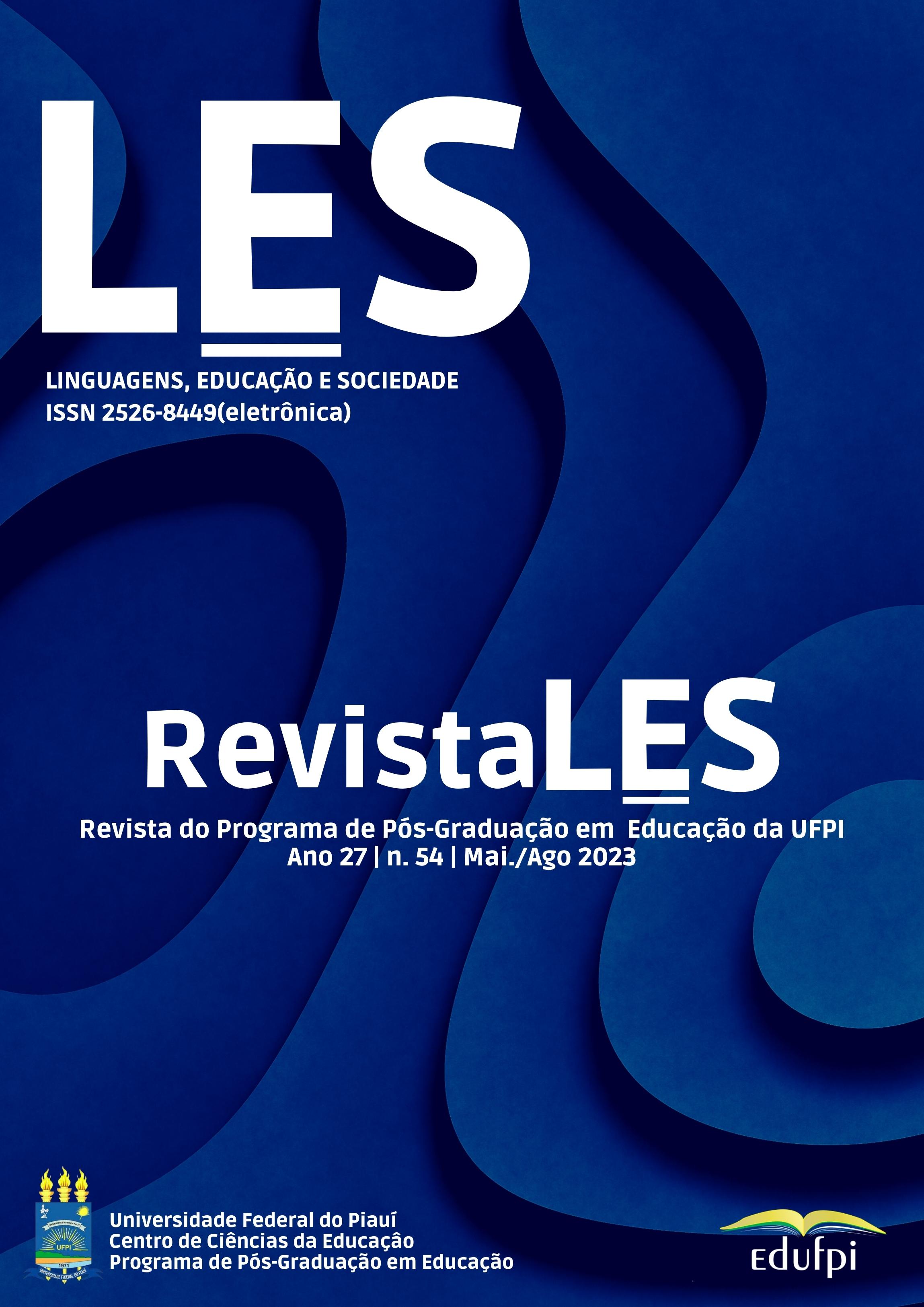Agenda 2030-ONU como ley lingüística neoliberal: educación de calidad y desigualdades sociales
DOI:
https://doi.org/10.26694/rles.v27i54.4165Palabras clave:
Neoliberalismo, Desigualdad social, Agenda 2030-ONU, Educación de CalidadResumen
El objetivo del estudio fue presentar evidencias de que la Agenda 2030-ONU, principalmente en su Objetivo 4, que trata de la Educación de Calidad, puede estar involucrada en valores y principios neoliberales. Se trata de una investigación cualitativa, de carácter básico, que hizo uso del análisis del discurso sobre el corpus, destacando el análisis del concepto de calidad como uno de los objetivos de la Agenda 2030-ONU. El capítulo-artículo se basó en los aportes de Bauman (2015) y Bourdieu (1998, 2001), aliándose con la apropiación de categorías de desigualdad social provocadas por los efectos del discurso neoliberal. También se cita, entre otros autores, a Silva (2015, 2020) y Charlot (2013) con respecto a una mejor comprensión de los efectos neoliberales en la educación pública. Con base en el razonamiento y la discusión posterior, se concluyó que el concepto de Educación de Calidad contenido en la Agenda 2030-ONU es de carácter neoliberal, pretendiendo formar emprendedores individuales enfatizando las matemáticas, la ingeniería y el conocimiento aplicado, incitando a la competencia y más desigualdad entre gente.
Descargas
Citas
BAUMAN, Zygmunt. A riqueza de poucos beneficia todos nós? 1. ed. Rio de Janeiro: Zahar, 2015.
BAUMAN, Zygmunt. Sobre educação e juventude: conversas com Riccardo Mazzeo. 1. ed. Rio de Janeiro: Zahar, 2013.
BOURDIEU, Pierre. Contrafogos 2: por um movimento social europeu. Rio de Janeiro: Jorge Zahar Ed., 2001.
BOURDIEU, Pierre. Contrafogos: táticas para enfrentar a invasão neoliberal. Rio de Janeiro: Jorge Zahar Ed., 1998.
CHARAUDEAU, Patrick. Linguagem e discurso: Modos de organização. 2. ed. São Paulo: Contexto, 2016.
CHARLOT, Bernard. Da relação com o saber às práticas educativas. 1. ed. São Paulo: Cortez, 2013.
COSTA, Marisa V. A escola rouba a cena! Um início de conversa. In. COSTA, M. V. (Org.). A escola tem futuro? 2. ed. Rio de Janeiro: Lamparina, 2007.
GENTILI, Pablo; MCCOWAN, Tristan. Reinventar a escola pública: política nacional para um novo Brasil 2. ed. Petrópolis, RJ: Vozes, 2010.
ONU. Organização das Nações Unidas. Plataforma Agenda 2030 – acelerando as transformações para a Agenda 2030 no Brasil. Disponível em: https://brasil.un.org/pt-br/91863-agenda-2030-para-o-desenvolvimento-sustentavel Acesso em: 17 jan. 2023.
SACRISTÁN, José G. Por que nos importamos com a educação no futuro? In. IMBERNÓN, Francisco; JARAUTA, Beatriz. (Org.s). Pensando no futuro da educação: uma nova escola para o século XXII. Porto Alegre: Penso, 2015. p. 11-18.
SACRISTÁN, José G. O que significa o currículo. In. SACRISTÁN, J. G. (Org.). Saberes e incertezas sobre o currículo. Porto Alegre/RS: Penso, 2013. p. 16-35.
SAVIANI, Dermeval. História das ideias pedagógicas no Brasil. 4. ed. Campinas, SP: Autores Associados, 2013.
SAVIANI, Dermeval. A pedagogia no Brasil: história e teoria. 2. ed. Campinas, SP: Autores Associados, 2012.
SILVA, Tomaz T. da. A “nova” direita e as transformações na pedagogia da política e na política da pedagogia. In. GENTILI, Pablo A. A; SILVA, Tomaz T. da. (Org.s). Neoliberalismo, qualidade total e educação: visões críticas. 15. ed. Petrópolis, RJ:
Vozes, 2015. p. 11-30.
SILVA, Tomaz T. da. Currículo e identidade social: Territórios contestados. In. SILVA, Tomaz. T. da. Alienígenas na sala de aula (Org.). 11. ed. Petrópolis, RJ: Vozes, 2013. p. 185-201.
SILVA, Tomaz. T. da. Documentos de identidade: uma introdução às teorias do currículo. 3. ed. Belo Horizonte: Autêntica Editora, 2020.
SOUZA, Patrícia de. A Agenda 2030 para a Educação: o fundo público a serviço do capital, 2022.
THERBORN, Göran et. al. A trama do neoliberalismo: mercado, crise e exclusão social. In. SADER, Emir; GENTILI, Pablo (Org.s.). Pós-neoliberalismo: as políticas sociais e o Estado democrático. Rio de Janeiro: Paz e Terra, 2012.
Descargas
Publicado
Cómo citar
Número
Sección
Licencia
Derechos de autor 2023 Lenguaje, Educación y Sociedad

Esta obra está bajo una licencia internacional Creative Commons Atribución 4.0.











